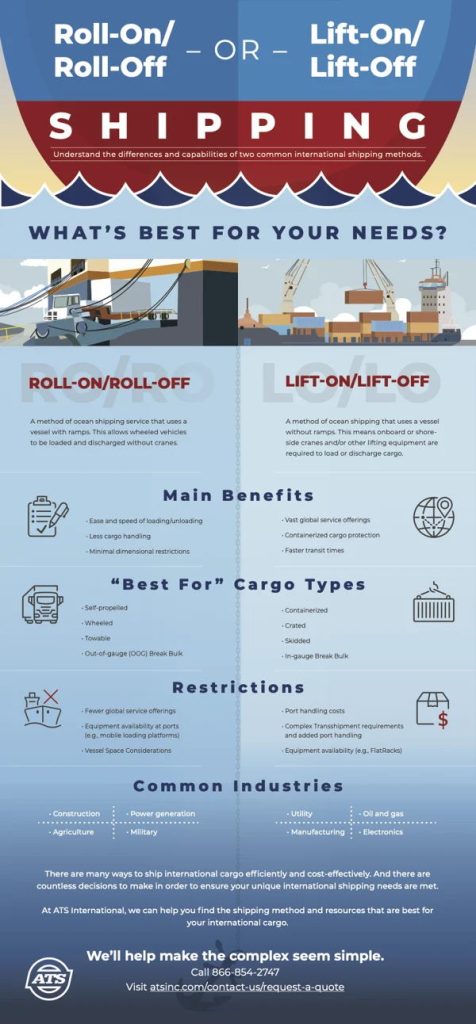Understanding “Container Roll-Off” (甩柜): What It Is & Why It Happens
1. What Is “Container Roll-Off”?
In foreign trade and logistics, “甩柜” (literally “container roll-off”) refers to a container being delayed or excluded from loading onto a ship despite it being ready in time. This occurs when the shipping line over-allocates space—allocating more container slots than actually available—leading to “full stowage” and forced exclusions.
This is entirely due to the carrier’s scheduling mismanagement, not caused by shippers or freight forwarders.

Importantly, “延船” (delayed sailing) differs from roll-off. “延船” occurs when the shipper/freight forwarder fails to have the cargo ready in time, while roll-off happens when the cargo is ready but the shipping line cannot accommodate it.
2. What Causes Roll-Off?
The main cause? Port bottlenecks and peak-season congestion. Carriers often overbook slots during busy seasons to maximize utilization. For instance, if a port has capacity for 100 containers, a carrier might allocate 110—that means 10 will inevitably be left behind when the ship sails.
But not all allocated containers arrive or clear customs in time—some may be canceled, delayed due to documentation, or held for inspection. Hence, the final number of delayed containers can vary, sometimes fewer than expected, but often between 5 to 10 slots.
3. Which Containers Are Likely to Be Rolled Off?
Shipping lines don’t roll off containers randomly or on a first-come basis. Factors that increase your risk include:
- Lower freight rates: cheaper cargo tends to be deprioritized.
- Weak shipping line relationships: more volume or better relationships reduce roll-off risk.
- Smaller freight forwarders: smaller players with less leverage are more vulnerable.
If you’re shipping high volumes through a responsive freight forwarder with strong carrier ties, your freight is significantly less likely to be rolled off.
4. What to Do When Your Container Is Rolled Off
A. 漏装 (Manifiesta – “Missed Loading”)
If your container is already in port and customs-cleared but fails to make the ship due to carrier spine, this is considered missed loading. No re-clearance is needed; the carrier schedules the container on the next available vessel.
B. 退关 & Re-application
If the carrier or customs doesn’t allow “missed loading,” you must de-close the container (申报撤销) and re-enter a new filing with updated voyage and bill of lading information—this incurs re-documentation and drayage fees.
5. Who Pays What?
Shipping line liability is limited; the roll-off is typically a contractual carve-out. Therefore:
- 转船费 (reloading fees) – Usually covered or reduced by the carrier due to their fault.
- 滞箱费 (container detention/demurrage) – Often waived if you can prove container was ready and delayed due to carrier.
- Container freight variance – Unfortunately, if the delay spans into a new rate period (often monthly), you’re responsible for the new rate.
- 改单费 (re-documentation) – Generally waived or discounted.
- All other fees – Handled by the shipper/freight forwarder at origin. Foreign customers won’t be held liable.
6. How Roll-Off Impacts EU & North American Importers via China
- Lead time uncertainty — roll-offs can derail JIT inventory planning by days or even weeks.
- Cash flow pressure — unexpected rebooking, drayage, and demurrage can hit budgets hard.
- Customs timing mismatch — consolidation and IOSS entries for EU or Section 321 for the US might miss filing slots.
- Coordination burden — multiple stakeholders overseas, shipping line sync, warehouse notifications must react quickly.
7. Mitigating Roll-Off Risk: Best Practices
A. Negotiated Booking Windows
Lock in firm loading windows with your forwarder and shipping line—don’t use open allotments.
B. Priority Labeling & Confirmation
Ensure your container has “priority lift” or “sail-on” notation on bookings.
C. Advance Docs + ASN
Submit ASN & customs declarations 3–5 days in advance, especially for IOSS or US CBP entries, so retention isn’t a risk.
D. Dual-Mode Planning
If loading late in the month, have a sea LCL backup or air consolidation plan ready.
E. Written Roll-Off Notice
Ensure your forwarder gets a written roll-off notice from the shipping line—helps in claims and penalty avoidance.
